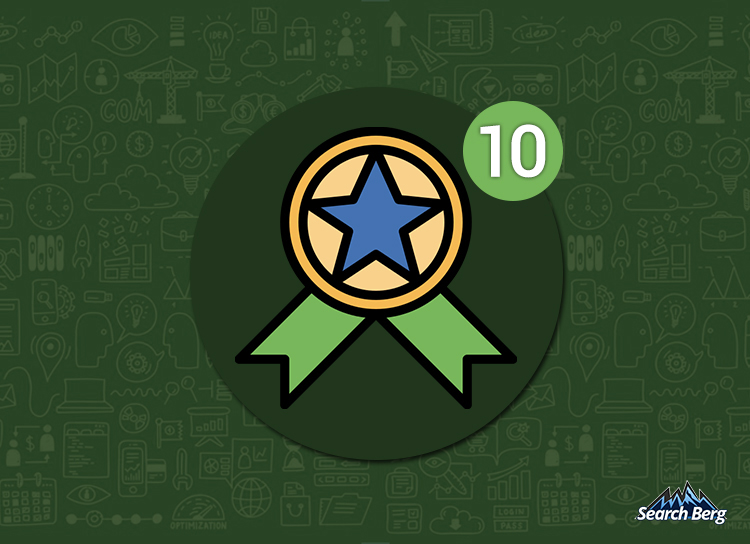How to Build A Good Reputation for Your Business That Will Entice Viewers and Create A Positive Brand Image
Many businesses don’t think much about online branding and reputation unless they really have to. That’s usually when something goes wrong and customers are filing in negative reviews and comments about their services or products.

Your online marketing team is most likely late to the game because now your negative review is up on the internet for the world to see and if there’s anything you should remember about the world wide web is that what goes up here, stays here.
Understanding Online Reputation and Brand Imaging
Positive brand and online reputation management are two things that need to be worked on long before something goes wrong. Now, it’s unrealistic to assume that you’ll never get a negative review or bad press ever. However, your task should always be to ensure that the positive feedback significantly outweighs any bit of negativity. This is important because surveys show that 97 percent of online customers always read reviews before choosing to buy a product or service. That’s quite a big number to pass up on.
If you’re running a small business and want to figure out better branding techniques, here are some tips from us!
1. Create Your Own Website
Do you have a website and domain address for your business? There’s no online reputation management without a solid online presence. If you’re still thinking about the name for your new website, we suggest you put in your business’s name exactly how it is.
If you’re a one-man-show, you can put in your own name. In terms of SEO marketing, websites that have a person or business’s name in them tend to rank higher than vague, edgy named websites. If you want to own more domains, make sure they’re related to each other and the essence of your business i.e. go for sub-domains.
Some websites have separate domains for their social networking feeds, online radio channels, video sharing platforms, contact pages etc. Separate domains will always be harder to rank on search engines, even when they come from the same name.
2. Blog Away
The blog page listed on your business website doesn’t have to be the only one you use. You can mix your personal and main blog easily. Just tell Google a blog is a related to you or your business and have the blog page show up alongside your business homepage! You can also connect your blog to your social media so it pops up under the same search results.
Another thing to keep in mind when you’re linking your blog pages is to insert relevant keywords into the title or URL. For example, you can write “your-business-CEO-your-name.com” and add something in the bio section that you think potential site visitors would be looking for. If you sell used cars for example, mention that! Feel free to let your creativity flow and link your blogs to your personal social media profiles with the help of Google authorship.
The point is that you want more people to get an insider look at your company. Blogs serve as a great opportunity to reach out to a broad group of consumers and get those SEO rankings going too!
3. Be Active on Social Media
Rule number one of social media activity is to not create an account on a medium that you’re not going to use. This is super important in terms of reputation management. It reflects very badly on your brand image when your social media accounts don’t have a complete profile, missing images, dated posts and no new updates.
You don’t have to be on every social medium out there. However, for the ones that you do use, make sure you’re regular on them. Try building strong networks with your audience and other local industries that could link back to you.

If you’re not sure if you can give time to all your social media sites equally and regularly, you can always get in touch with us for professional social media management services. We can help you come up with marketing strategies and content for Facebook, Twitter, Instagram, LinkedIn, Pinterest, YouTube and more.
For each platform, just remember the following pointers:
- Your profile name should match your personal or business name. This will help determine the category of your SEO rank.
- Always upload a profile picture with your business’s name.
- Three strong social media profiles will fare better than ten weak ones. Post content regularly!

4. Create E-Business Cards
Back in the day, business cards were a popular way to manage brand reputation and draw networks with potential partners and clients. You can do the same online. There are plenty of websites that let you create customized pages that show a brief bio and have room for links to your blogs and other social media. Whatever website you choose to create your online business cards on, make sure you’re using your name or your business’s name so it shows up under relevant searches.
5. Claim Your Local Profiles
If your business is local, make sure you claim all those directory listings in your name. Create them if you’re not yet listed in local directories. From Google My Business to Yahoo Local, there are plenty of places to get your business listed. This should also help you with some advertising because an embedded local business map can make it easier for customers to find you online.
6. Write as a Guest
Guest posts are helpful for reputation management because they allow you to reach out to a broader market segment than your target one. Don’t go looking for one time opportunities where your guest post barely features you on the byline. It’s better to be guest writing for websites that let you have your own author profile or custom bio page.

7. Always Say Yes to Interviews
If you ever get the opportunity to do an interview, even if it’s a transcription posted on a blog—say yes! The thing with interviews is that they rarely go un-credited. Your personal name as well as your business name is going to be in the forefront; preferably, in the title, which will help the entire content rank well. Not to mention, the number of people watching or reading your interview is going to improve your brand visibility, which is always great for a positive image.
8. Put Up Loads of Images of Yourself

When you’re creating your social media profile or putting out guest posts, you’re already uploading lots of images of yourself and your business. This is a useful strategy to push down any negative reviews or search results associated with your name. When someone types your name into the search bar what they’re going to get is lots of image results. This includes all those blog posts, bios, social networks and profiles where you have uploaded your image.
However, this trick will only work if all your images have been uploaded with the same name—not with something vague and descriptive. If you’re going to embed your picture on a website then make sure you optimize the code to SEO standards. The embedded link will enable your picture to pop up immediately for image searches and will lead your visitors to your webpage—a nice trick to generate some traffic.
9. Make Lots of Videos
Want to boost your SEO rankings? Videos are a surefire way to do it. If you want to improve rankings specifically for Google, your best bet is to upload your videos on YouTube since they’re owned by Google and are definitely going to show up in the search results. However, there are other options like Vimeo too. You can upload your work there too. In any case, the interesting thing about videos for brand and reputation management is that it’s less about the content of the video and more about how it’s indexed. The title of the video is especially important. Always include your name and your business name in the title and description sections. Also, keep the title short.

10. Write Press Releases
Press releases are a tried and tested method to get your name out there when all else fails. This is a time sensitive reputation management option and works best when it comes to handling a crisis of sorts. It’s also a formal way to respond to a query or accusation when posting on social media doesn’t seem appropriate. In any case, press releases are a great way to introduce a new product or service and keep your clients updated with business happenings. You can get professional press releases prepared with Search Berg at a fraction of the market rate.
11. Integrate All Your Links
A top SEO ranking makes a major positive contribution to your brand image. Studies show that over 80 percent of people will click on the first brand listed on the search results. So in a way, brand familiarity builds alongside SEO ranks. To get that rank however, you’ll have to ensure all your links are interconnected. Back-links are king! Here are some tips on how to effectively back-link:
- Mention your blog and website on all your social media profiles.
- Add links to all your guest posts, interviews and podcasts so people can be led to your homepage.
- Embed videos to your blogs and then share them onto your social media platforms.
- Link your sub-domains and blog posts to your homepage.
- Proudly mention all your notable achievements on your social media and directory listings.
Want Professional Reputation Management Services?
Positive brand marketing and online reputation management isn’t everyone’s cup of tea. It takes serious dedication and SEO marketing knowledge to get quick results. Perhaps then seeking professional help is the ideal solution for small businesses.
Search Berg offers online reputation management services to all kinds of businesses and is a specialist in the White Hat SEO marketing department. Get in touch with the leading content development firm in the United States today!












